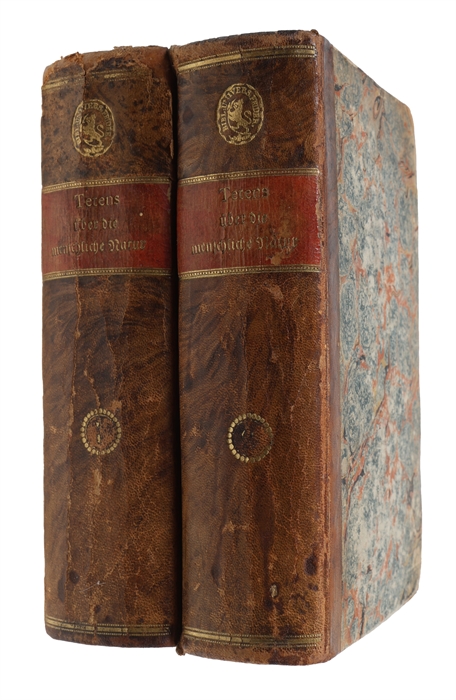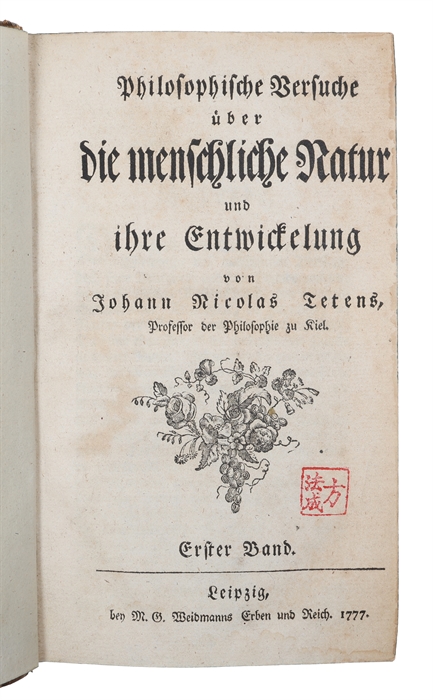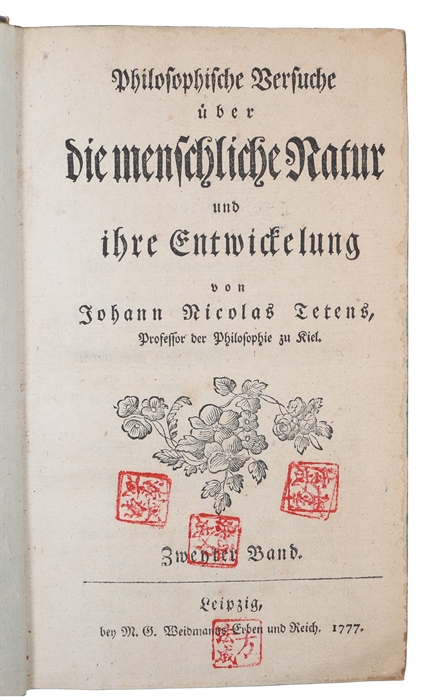INSPIRING KANT TO DEVELOP HIS A PRIORI THEORY
TETENS, JOHANN NICHOLAUS.
Philosophische Versuche über die menschliche Natur und ihre Entwickelung. 2 vols. (i.e. English: "Philosophical Essays on Human Nature and Its Development").
Leipzig, M. G. Wiedmanns Erben und Reich, 1777.
8vo. Uniformly bound in two contemporary half calf binding with gilt lettering to spines. Gilt library stamp to both stamps and red library stamp to both title-pages. Deaccession-stamp (dated 20-1-1948) to both pasted down front end-paper. Some wear to extremities, leather on spine cracked and head of spines chipped. Internally very nice and clean. LVI, 784 pp.; XXVI, 834, (2) pp.
Uncommon first edition of Tetens’ seminal work which was a major influence on Kant and his development of his synthetic a priori theory. Tetens has also been referred to as the "German Locke”. “(The present work) is essentially an investigation of the origin and structure of human knowledge and was the most important philosophical work written in Germany during the period immediately prior to the publication of the Critique of Pure Reason (1781) by Kant, who valued Tetens’ work highly. Kant reiterated Tetens’ emphasis on the importance of empirical foundations for philosophical studies. He was also influenced in the construction of his own theory of human knowledge by Tetens’ threefold division of consciousness into the faculties of feeling, will, and understanding. By the last category he referred to the faculty of forming and combining ideas.” (Encyclopedia Britannica). “Like the British empiricists, Tetens begin with an account of sensations and ideas. Ideas are described as due to the operation of the traces caused by sensations. He compares the relation of memories to sensations with the relation of visual after-image to the initial sensation, memories being due to continued activity in the eye. (…) He accepts two laws of association, namely, similarity and contiguity in time and space, but he rejects Hume’s third type of association, causality. He clears up Berkeley’s and Hume’s difficulties with general ideas, by distinguishing clearly between the idea (in the sense of image) and its meaning.” (Wolf, A History of Science Technology and Philosophy in the 18th Century, P. 690) Provenance: From the library of Danish philosopher and author Carl Henrik Koch.
Order-nr.: 61815



